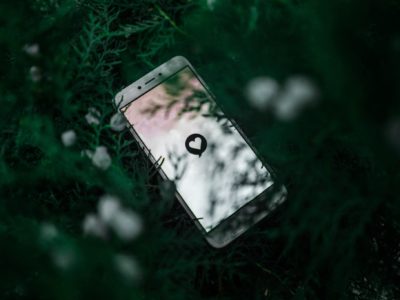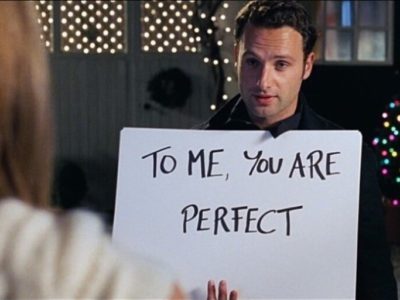In this day and age, dating apps aren’t breaking news. You may even be wondering why we’re still debating their usage in 2019. For those that aren’t a believer of finding true love online, it’s hard to look down on the ease skimming through profiles while waiting for a coffee. Plus, receiving flowers from a bunch of good-looking strangers can be a sweet ego boost. While offered limitless matches to flip through, we always take on limitless reasons to look for more.
Is online dating really a magic life-changer for college relationships?
“Students nowadays have already spent so much time online, so they may feel comfortable to turn to screen for romance as well,” said Clinical Psychologist and author of Prescriptions Without Pills, Dr. Susan Heitler.
According to the data released from Tinder in 2014, the average user logged in 11 times a day. The total amount of swipes per day can reach 1.6 billion, among which men typically spent 7.2 mins per session and women spent 8.5 mins. An online dating study conducted by Pew Research Center in 2016 showed 41% Americans knew someone who used online dating and 29% knew someone who had met a spouse or long-term partner via online dating. In particular, nearly 58% college graduates knew someone who used online dating and 46% knew someone who had entered into a marriage or long-term partnership with someone they met via online dating.
Especially, for introverts, dating apps can help to build initial connections. Hitting on someone in a party requires courage and good social skills.
Imagine approaching someone and trying to come up with some interesting icebreakers in the span of a mere 30 seconds. If you failed, the awkwardness could be an unbearable burden for both of you. You find an excuse to get drinks and when you return, your crush may have already sneaked away. Frustrated as you are, you feel more anxious to socialize with people the next time you’re out. Thus, a vicious cycle begins.
Dating apps, on the other hand, save introverts from social anxiety. Compared to the stress shy people face when giving an improvised speech to impress someone, they now have much more autonomy to express themselves in their bios. Finding common interests takes time in real life. By looking through profiles, however, you can easily find something to chat about for hours. Anxiety fades away as you gain confidence through this communication.
More often than not, we’re encouraged to get out of our comfort zones. But this time, comfort zones grease the wheels.
“Chatting online relieves the burden of getting lost in awkwardness. But when people can hide behind screens, they may misrepresent themselves,” said Gaby Grebski, Global Wellness Counselor at New York University.
“Daters lie to meet the expectations of what they think their audience is,” said Professor Catalina Toma in the New York Times article, “Love, Lies and What They Learned.” Daters can lie about their ages, their hobbies, their financial situation and their past. Unfortunately, although some linguistic indicators are available out there to help spot lies, online dating is still a risky game about trust.
Unlike traditional campus romance, the pre-commitment stage as friends shorten in the world of online dating. Before, people meet as friends, go out on dates, and then decide whether to commit to each other. A process which might last over years.
“How long two people knew each other actually didn’t matter. The appropriate matching is more important [than that],” said Dr. Heitler.
Sociological matching like religion, education, and political beliefs helps people make decisions. And that’s why mathematical algorithms deployed in dating apps sound appealing. “Calculations based on your personal information weed out ‘deal breakers’,” said Grebski. For example, she recalled on OkCupid, users are asked questions like “would you ever consider an open relationship/marriage.”
According to “The most important questions on OkCupid,” some questions that most users marked as important are: “are you capable of being faithful even when your lover is away for long periods of time” (a tester for long-distance relationship), “is climate change real” (political beliefs may influence), and “is your duty to religion/God the most important thing in your life.” Those questions initiate meaningful heart-to-heart discussions and give both sides a sneak preview of potential conflicts.
Nevertheless, math isn’t a guarantee for finding true love.
An aspect of connection vanishes when you only know someone through texts and pictures.
An alternative to online dating used to be speed dating. You sit down with a stranger and have five minutes to exchange some personal information before moving to the next person. “It’s different from online dating because you won’t be able to observe people’s facial expressions, tones and personality,” said Grebski.
Whether forming a theoretical match matters to college romance is also dubious. As Erich Fromm argues in his book, The Art of Loving, young people tend to be attracted to someone unlike them.
College students nowadays appear to be more open and positive towards online dating. “I am positive about online dating, but it may just not be on my plate right now,” said New York University senior, Lotus Belle-glover.
Yet for some people, finding partners through online dating is still perceived as a social stigma.
An anonymous student confessed that she and her boyfriend chose to lie about how they knew each other when they met new friends. “Dating apps could be perceived as a superficial method to develop relationships in my friend group,” said the anonymous student.
In terms of tips to college students on relationships, Dr. Heitler emphasized the importance of conversing in a collaborative way. “Start to ask some formal questions like attitudes towards common triggers of fights in relationship,” she said. “And knowing whether your potential is controlling or cooperative helps both parties sort out issues in their relationship.”
“Dating is a self-growth experience because you know better what you want after problem-shooting in a relationship,” said Grebski. “What’s more, students shouldn’t let pop culture influence their judgements. Horror stories you hear from your friends or sweet romance you see on your Instagram may not be true.”
All pros and cons aside, online dating nowadays has indeed triggered modern romance around campus with its algorithmic playbook. The very answer to online dating or not comes down to a more important issue that we all encounter somewhere along our life journey: the self-discovery of our uniqueness.



















